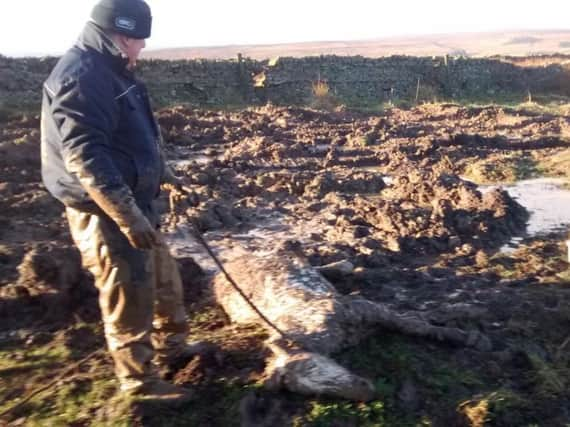North East branded among worst for animal cruelty as hundreds of horses 'dumped like rubbish'


The charity, which released its "annual cruelty statistics" this morning, said the north of England was again at the top of the table when it comes to cases investigated.
The North West had the bleakest record in the north, but the North East was particularly bad when it came to cases involving horses - with County Durham sitting second worst in the country for equine cases.


Advertisement
Hide AdAdvertisement
Hide AdOverall there were 2,964 animal cruelty complaints in Tyne & Wear in 2017, up from 2,891 in 2016, and 26 people were convicted.
In Durham there were 3,384 complaints, down slightly from 3,388, and 38 people were convicted. In Northumberland there were 832 complaints, down slightly from 847, and five people convicted.
This year the RSPCA is focusing on the plight of horses as animal rescuers and welfare charities struggle to cope with an ongoing equine crisis.
In County Durham there were 734 complaints relating to horses in 2017, up from 646 in 2016, and 213 of the animals had to be rescued by RSPCA officers in the past three years.


Advertisement
Hide AdAdvertisement
Hide AdIn Tyne & Wear there were 330 complaints, down from 405 in 2016, with 26 horses rescued.
In Northumberland there were 106 complaints in 2016, down from 144 in 2016, with 11 horses rescued.
The RSPCA’s inspectorate national equine co-ordinator Christine McNeil said: “Up and down the country, horses are being found sick, or dumped liked rubbish, dying or dead. Distressingly, this is common and it’s a huge issue.
"We are constantly receiving calls to our cruelty line - on average 80 per day about horses alone - as well as messages every day on social media from very concerned and upset people asking for our help."


Advertisement
Hide AdAdvertisement
Hide AdShe added: "We’ve been talking about the horse crisis for several years now, but the truth is the situation is just as severe today as when it started.
"Last year we took in more horses than we have in any of the past four years (980), and with our inspectors being called to rescue more and more every week, we are stretched to the limits."
If you are concerned about an animal’s welfare, you can report it to the RSPCA cruelty line on 0300 1234 999.
To help the RSPCA continue rescuing, rehabilitating and rehoming animals in desperate need of care, visit www.rspca.org.uk/suffering.


Noggin's story
Advertisement
Hide AdAdvertisement
Hide Ad‘Noggin’, a yearling cob colt, was collapsed in a swamp-like, muddy field when he was rescued by RSPCA inspectors and the British Horse Society just a couple of days before Christmas in 2016.
RSPCA chief inspector Mark Gent said: “We had removed a large herd of 23 abandoned and suffering ponies from a place called Tow Law, on the edge of the county in the middle of nowhere.“The horses were in very poor condition, the field they were in was barren and there was nothing to shelter the group from the extreme winter weather.“They were all loaded up onto the lorry and I went to do a last check of the field, that’s when I found Noggin.“He was collapsed, exhausted, extremely cold and almost invisible in a sea of mud, barely alive. In fact my first thought was that he was dead.“He was so lucky.”